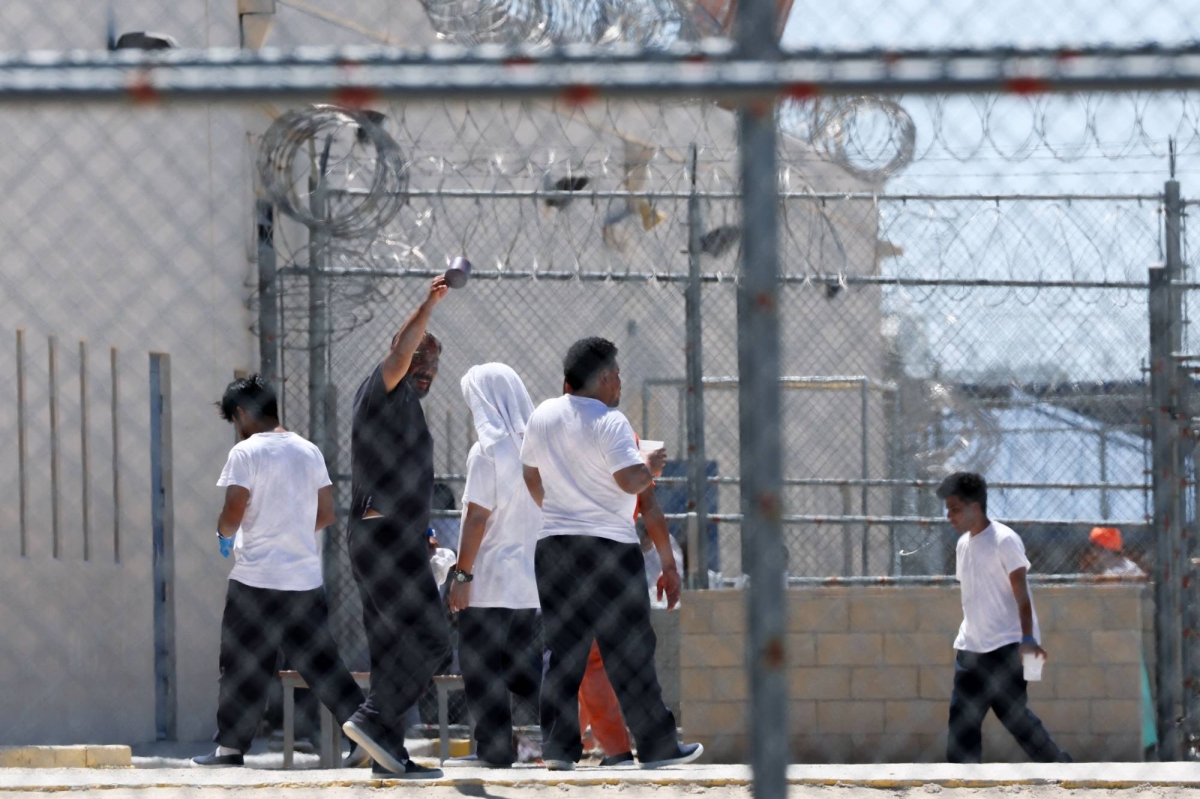Private prison corporations are set to benefit from the Trump administration's unprecedented deportation drive.
Why it matters
- The Trump administration's aggressive deportation policies are leading to a significant increase in detainee numbers.
- The financial success of private prison companies is closely tied to the volume of detainees they house.
- These developments raise ethical concerns regarding the privatization of immigration enforcement and its implications for human rights.
The Trump administration's intensified approach to immigration enforcement is creating a lucrative opportunity for private prison companies. As the government ramps up its deportation activities, these corporations are set to reap substantial financial benefits. With a focus on detaining individuals with criminal backgrounds, the policies are not only reshaping the landscape of immigration enforcement but also igniting discussions about the ethical implications of privatizing such significant aspects of law enforcement.
Under the current administration, U.S. Immigration and Customs Enforcement (ICE) has shifted its priorities to target undocumented immigrants with criminal histories, a decision rooted in the belief that these individuals pose a greater threat to public safety. This strategy has led to a surge in the number of detentions, which directly benefits private prison corporations that have contracts with the government to house these detainees. As the demand for detention space increases, these companies find themselves in a position to expand their operations and increase their profits.
Critics argue that this relationship between the government and private prison companies is problematic. As more individuals are detained, the financial incentives for these corporations grow, raising concerns about the potential for abuse and mistreatment of detainees. With the profit motive at play, there is a fear that the quality of care and the rights of individuals held in these facilities may be compromised. Reports of poor living conditions, inadequate medical care, and lack of legal representation have already surfaced, highlighting the darker side of the privatization of the correctional system.
Furthermore, the focus on deporting individuals with criminal histories has sparked a debate about the definitions of crime and punishment in the context of immigration law. Many argue that the criminalization of undocumented immigrants not only stigmatizes them but also perpetuates a cycle of fear and repression in immigrant communities. The reality is that many individuals facing deportation have committed minor offenses or have been unfairly labeled as criminals due to their immigration status.
In addition to these social and ethical implications, the financial dynamics of private prisons are worth examining. According to industry reports, the market for private prisons has seen significant growth in recent years, with the demand for detention facilities increasing as immigration enforcement tightens. As the government contracts out the housing of detainees, private prison companies are incentivized to maintain high occupancy rates, further entrenching their role in the immigration system.
The potential for profit in this sector raises critical questions about accountability and governance. With private companies managing facilities that detain individuals, the oversight of conditions and treatment of detainees often falls short. Advocacy groups have called for greater transparency and regulation to ensure that the rights of those in detention are protected, but these calls have often been met with resistance from industry leaders who prioritize profit over people.
In light of these developments, the implications of the Trump administration's deportation policies extend far beyond mere statistics. They reflect a broader trend towards the commodification of immigration enforcement, where human lives are viewed through the lens of profit margins and corporate interests. As the administration continues to push for stricter immigration measures, the role of private prisons will likely become even more pronounced, prompting ongoing discussions about the morality and efficacy of such strategies.
The intersection of immigration, law enforcement, and corporate profit presents a complex landscape that demands critical examination. Advocates for immigration reform will need to address not only the humanitarian aspects of the issue but also the economic and political factors that drive the privatization of detention facilities. As the situation evolves, the voices of those affected by these policies must be amplified, ensuring that the conversation surrounding immigration enforcement remains rooted in humanity and justice.











